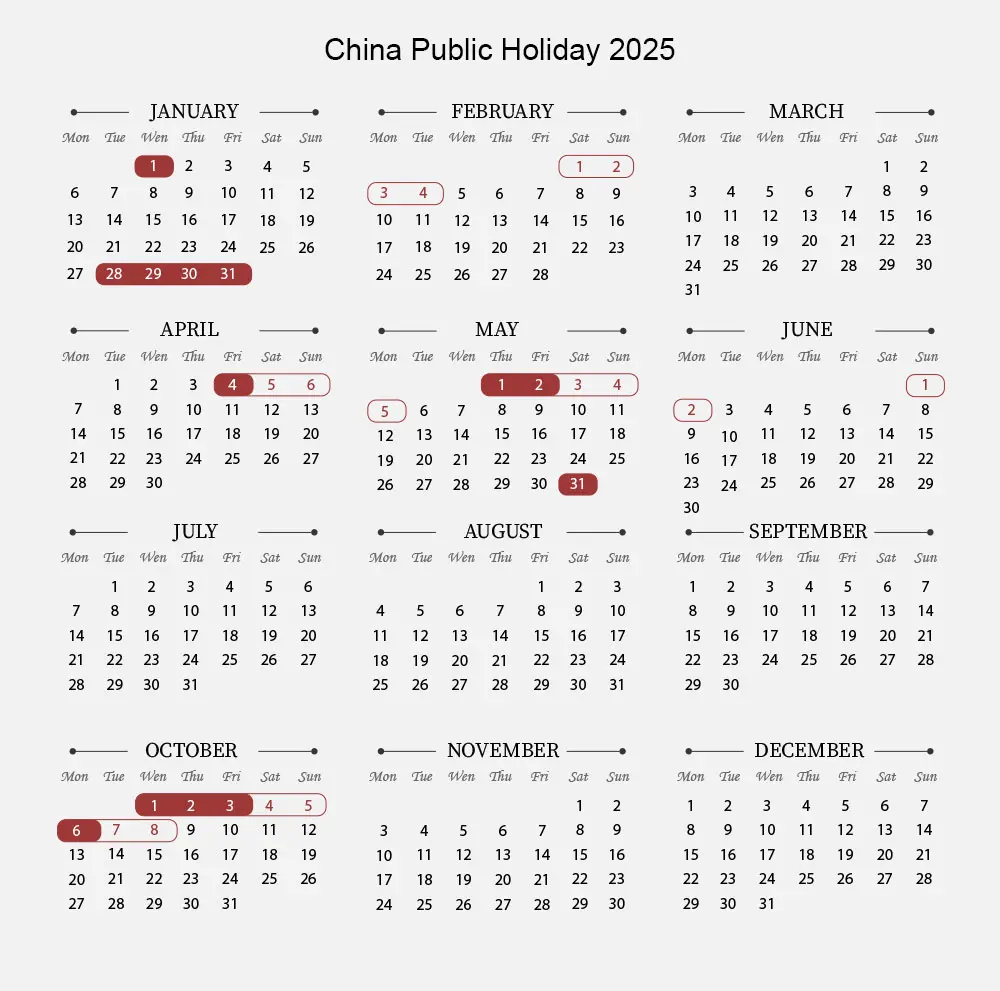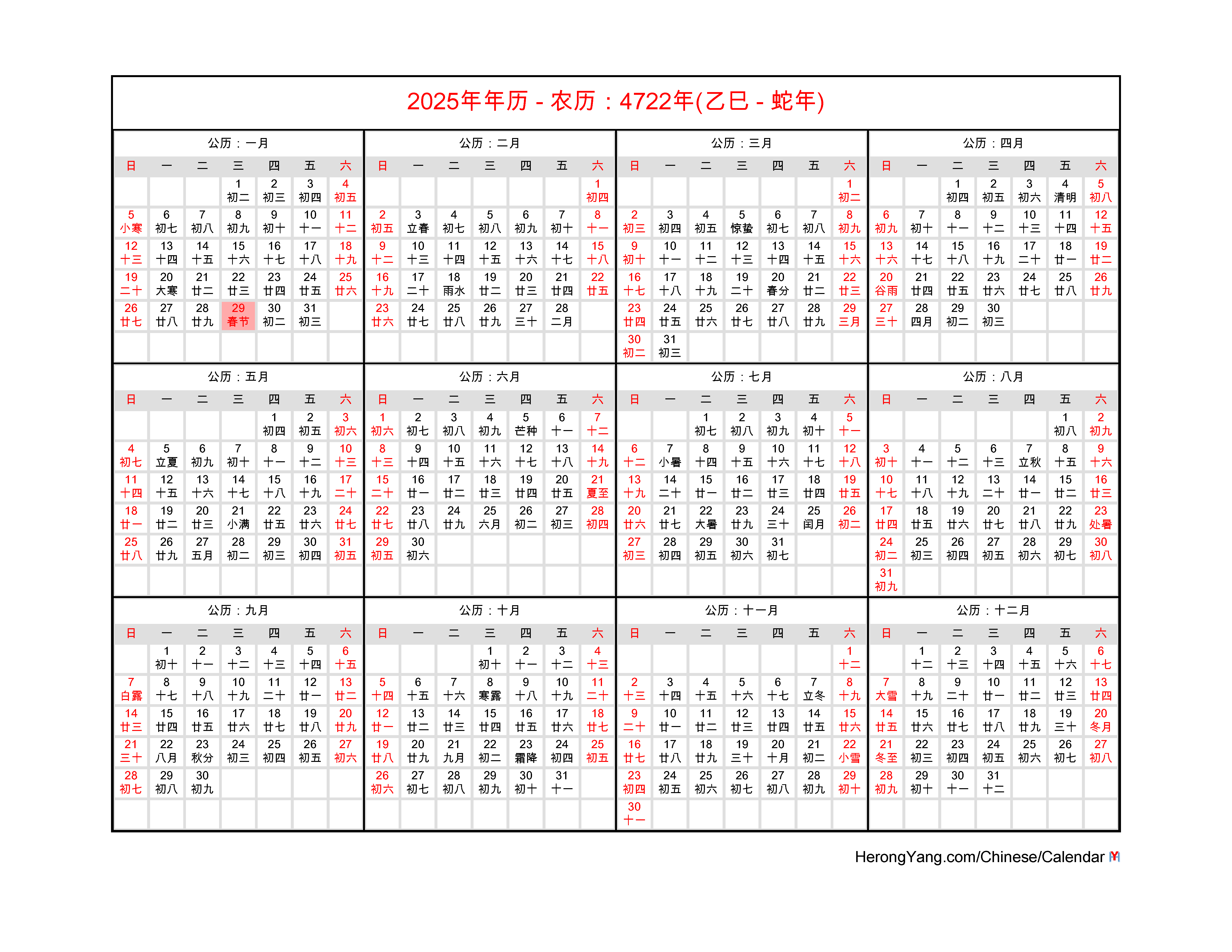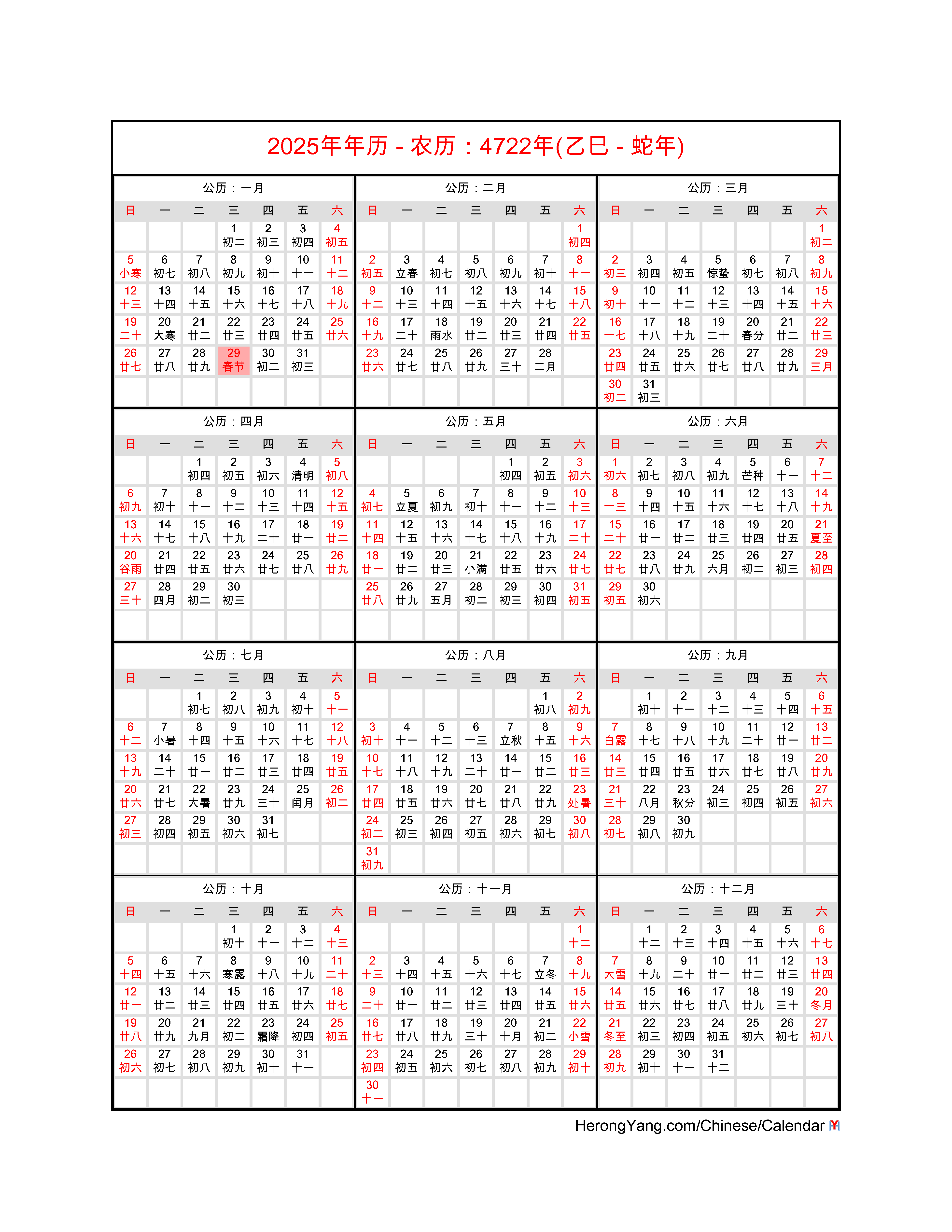A Comprehensive Guide to Chinese National Holidays in 2025
Related Articles: A Comprehensive Guide to Chinese National Holidays in 2025
Introduction
With enthusiasm, let’s navigate through the intriguing topic related to A Comprehensive Guide to Chinese National Holidays in 2025. Let’s weave interesting information and offer fresh perspectives to the readers.
Table of Content
A Comprehensive Guide to Chinese National Holidays in 2025

China, with its rich history and vibrant culture, celebrates a unique set of national holidays, offering a glimpse into the nation’s values and traditions. These holidays, observed with fervor across the country, serve not only as commemorative events but also as opportunities for family gatherings, cultural immersion, and economic stimulation.
Understanding the Calendar:
The Chinese calendar, a lunisolar system, dictates the timing of many national holidays. This means that the dates for some holidays change annually, often falling on different days in the Gregorian calendar.
Key National Holidays in 2025:
1. New Year’s Day (元旦)
- Date: January 1st
- Duration: One day
- Significance: Celebrates the beginning of the Gregorian calendar year, marking a fresh start and renewed hope. It’s a time for family reunions, festive gatherings, and the exchange of New Year’s greetings.
2. Spring Festival (春节)
- Date: February 10th, 2025 (based on the lunar calendar)
- Duration: Seven days (including the Lunar New Year’s Eve)
- Significance: The most important holiday in China, marking the beginning of the lunar new year. This period is characterized by family reunions, traditional customs like the lion and dragon dances, feasting, and the exchange of red envelopes (hongbao).
3. Tomb-Sweeping Day (清明节)
- Date: April 4th, 2025 (based on the solar calendar)
- Duration: One day
- Significance: A day for remembering and honoring ancestors. Families visit cemeteries, clean graves, and offer food and incense as a tribute to their departed loved ones.
4. Labor Day (五一国际劳动节)
- Date: May 1st
- Duration: One day
- Significance: Celebrates the contributions of workers and recognizes the importance of labor rights. It’s often a time for leisure activities, travel, and family outings.
5. Dragon Boat Festival (端午节)
- Date: June 7th, 2025 (based on the lunar calendar)
- Duration: One day
- Significance: Commemorates the life and death of the poet and minister Qu Yuan. It’s characterized by the tradition of eating zongzi (sticky rice dumplings) and participating in dragon boat races.
6. Mid-Autumn Festival (中秋节)
- Date: September 10th, 2025 (based on the lunar calendar)
- Duration: One day
- Significance: A harvest festival celebrating the full moon, symbolizing unity and family togetherness. It’s a time for feasting on mooncakes and admiring the moon.
7. National Day (国庆节)
- Date: October 1st
- Duration: Seven days
- Significance: Celebrates the founding of the People’s Republic of China in 1949. It’s a time for national pride, parades, cultural performances, and travel.
Beyond the Calendar:
These national holidays are not simply fixed dates on a calendar; they are deeply ingrained in Chinese culture and tradition. They provide a powerful framework for understanding the country’s history, social values, and cultural practices.
Economic and Social Impact:
- Tourism Boost: National holidays drive a surge in domestic tourism, as families and individuals take advantage of the extended breaks to travel and explore different parts of the country.
- Retail Growth: Consumer spending increases significantly during these periods, with retailers offering promotions and discounts to attract shoppers.
- Social Bonding: National holidays provide opportunities for families and friends to reconnect, strengthening social bonds and fostering a sense of community.
- Cultural Preservation: These celebrations serve as a platform for preserving and promoting traditional customs, dances, music, and cuisine.
FAQs about Chinese National Holidays:
Q: Are all national holidays observed as public holidays in China?
A: Yes, all the national holidays listed above are public holidays in China, meaning most businesses and government offices are closed during these periods.
Q: What are the typical activities during national holidays?
A: Activities vary depending on the specific holiday. Common activities include family gatherings, festive meals, attending cultural events, visiting historical sites, traveling to scenic destinations, and participating in traditional customs.
Q: How are national holidays celebrated in different regions of China?
A: While the core celebrations remain similar nationwide, regional variations exist. For instance, the Dragon Boat Festival in southern China might feature more elaborate dragon boat races, while the Mid-Autumn Festival in the north might involve different types of mooncakes.
Q: What are the best ways to experience Chinese national holidays?
A: Immerse yourself in local traditions, participate in cultural events, engage with local communities, and enjoy the festive atmosphere.
Tips for Travelers during Chinese National Holidays:
- Book travel arrangements well in advance: Flights, train tickets, and accommodations tend to be in high demand during national holidays.
- Expect crowds: Popular destinations will be crowded, so be prepared for longer wait times and limited availability.
- Learn basic Mandarin phrases: While English is becoming more common in tourist areas, knowing basic Mandarin phrases can enhance your experience and interactions with locals.
- Respect local customs: Dress modestly, avoid public displays of affection, and be mindful of local customs and traditions.
- Enjoy the festivities: Embrace the festive atmosphere, participate in cultural events, and savor the unique experiences offered during these special occasions.
Conclusion:
Chinese national holidays are more than just days off from work; they are vibrant expressions of the nation’s rich cultural heritage and social fabric. These celebrations offer a unique opportunity to experience the warmth and hospitality of the Chinese people, delve into their traditions, and gain a deeper understanding of their history and values. Whether you are a traveler seeking new experiences or a resident eager to celebrate, these holidays provide a chance to connect with the essence of Chinese culture and create cherished memories.








Closure
Thus, we hope this article has provided valuable insights into A Comprehensive Guide to Chinese National Holidays in 2025. We hope you find this article informative and beneficial. See you in our next article!